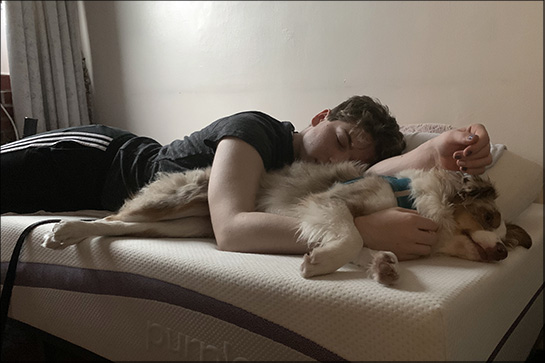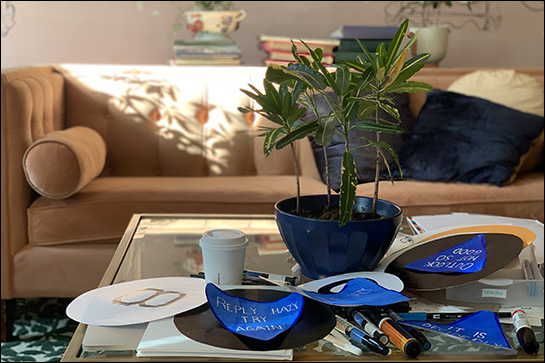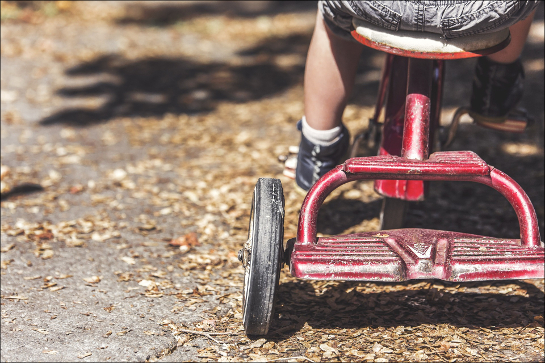It’s not too late to plan your kid’s Positive Childhood Experiences

There’s a test of positive childhood experiences to see how resilient a person is. How positive your childhood was impacts how resilient you’ll be as an adult. (I think this was developed to be a pick-me-up for people who scored poorly on the adverse childhood experience test, which I scored almost 100% on.)
I assumed positive childhood experiences would be things like go on family trips, have a family dog. But they are actually more complex than that. Like, feel supported by family in difficult times. So, I guess pawning that job off on the family dog doesn’t cut it. Okay. Predictable now that I see it.
The positive childhood experiences list is so important because if a kid has enough they can actually compensate for the adverse experiences. But the list items are not intuitive to me. Probably because I didn’t have them, so they weren’t on my radar as things that were important.
But I discovered the list when my kids were in their late teens, and I refocused my attention immediately to make sure they had as much as they could. Here are the three items I think homeschool families are most likely to miss:
Sense of belonging in high school.
This is not about high school the building but high school the time of life; a sense of belonging can be found in many places. It can come from participation in activities, joining clubs or groups that share a similar interest, or simply finding peers to connect with in a meaningful way. Feeling connected and having positive relationships forged and navigated independently of ones parents is the key here, because its a way to build self-confidence and independence in a developmentally appropriate way.
Enjoyment and participation in community traditions.
Traditions allow us to feel part of a greater whole. Having traditions in childhood creates a rhythm that binds us to the greater whole and connects us to our families. Celebrating traditions allow for meaningful moments to be had within families and among communities. This can help a child feel connected, garner a greater sense of community, and promote positive life-long memories.
Having at least two non-parent adults who genuinely care.
These are people who are not family members. It is important to have an adult who is a positive influence with whom they have a healthy attachment, a person they feel they can talk to or turn to besides their family. My older son definitely has this. But I wasn’t sure about my younger son. Especially since he isn’t playing cello. I asked my son if he had this. He told me Melissa and one of my cousins. That cousin was really not on my radar. I was shocked. Also the cousin is family. But I told myself whatever. And I bought a plane ticket for Z to go visit him.



Finally- the definitive list of How to Be a Good Parent! They should hand this out at the hospital when you deliver the baby.
I know! This reminds me of when I found out that pregnancies over age 34 are high risk. Why do people not give us this information when it’s useful? There is a treasure trove of non-corporate training that we need but corporations would not benefit so we’re on our own. I just feel way over-trained for the workplace.
Penelope
This is so nice. That your kids both have two positive adult figures in their lives as teens. And that once you realized that kids need those positive experiences you immediately set to work to try and make sure your kids had them. I think a ton of parents would have just shrugged, made excuses, and continued on as they were.
My high school art teacher was probably my positive adult. I think she could sense that my life was kind of fucked up at home, so she let me do a “student assistant” period with her where I just went to the computer graphics room and slept and ate her snacks the whole time. Also she let me house-sit for her when she went on trips during the summer, and that was really fun. It was a nice way for me to get out of my mom’s place for weeks at a time. She’s probably the reason I ended up going to art school and eventually start teaching art, now that I think about it. So yeah that adult can really influence the teen a lot.
Thanks for posting this, Minami. Someone once told me that I overwhelm myself unnecessarily with my grand gestures. I like your story because you remind me that I don’t have to make a grand gesture in order to make a difference in someone’s life.
Penelope
Looking back, what was really helpful to me was the community (and very much the neighborhood). The parents of my friends and acquaintances were from the greatest generation. I listened to and respected them even though I disagreed with them at times. I inherently knew that they had life experiences that I could learn from. I was part of the family of some of my friends and neighbors. As one example, a neighbor who had only one child who was much older than me took me on a fishing trip for a couple of weeks in Quebec when I was 10. Deep sea fishing and catching a 10-pound lake trout was a big deal for me at the time. One summer job I had in town just prior to going to college was working on a highway crew. It was hard work but rewarding in its own way. The Highway Superintendent who checked our work and progress was a WWII Marine veteran. You get the idea. Also, now that I think of it, a community with generational roots is not nearly as common as it was when I grew up. Families move around to advance their careers. Children go to college and move away from their hometowns. All this to say, I consider myself to be very fortunate when and where I grew up.
I thought about this list all last week. It sounds so straightforward and foreign at the same time. Esp the last point about having non parent adults who care.
This is why im spending so much time on autism therapy: hoping the therapists will stay and care about our wellbeing while practice emotional regulation. I think im in therapy overkill when my kids are this young.
I’m going to send the link on to my daughter. I feel she has some of these things but I could probably do better